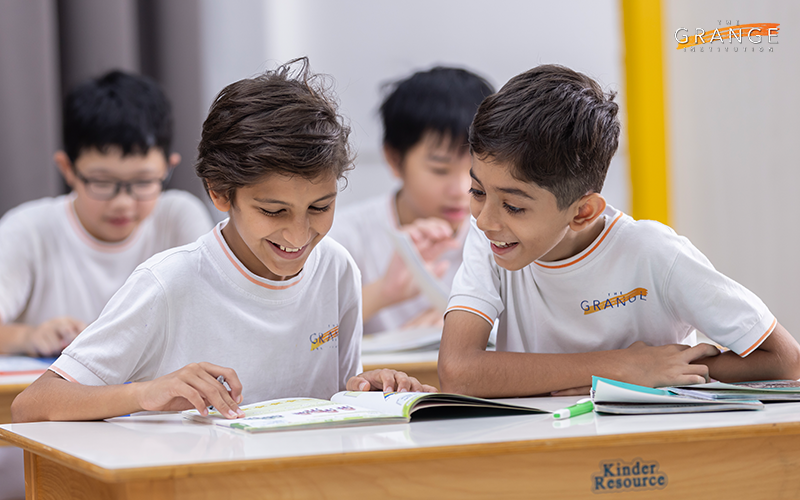As a parent or guardian, one of the most important decisions you’ll make is choosing the right school for your child’s education. This decision lays the foundation for their academic journey and shapes their initial learning experiences. Understanding the local school vs international school landscape in Singapore is crucial in making an informed decision. Both options offer distinct advantages, from a strong national curriculum to a globally recognised education framework.
Are international schools better? Let’s explore some of the key differences between the two types of educational institutions.
Local School vs International School
1. A World of Cultures
- International Schools: Imagine a vibrant classroom buzzing with students from diverse backgrounds. International primary schools embrace this multicultural environment, where children interact with peers from various countries, cultivating a global perspective and appreciation for different customs and traditions. This exposure not only broadens their worldview but also equips them with crucial social and communication skills needed to thrive in an increasingly interconnected world.
- Local Schools: Local schools primarily cater to the local student population, offering a strong foundation in the country’s culture and language. This emphasis nurtures a sense of community and belonging among students. However, opportunities for international exposure may be limited in comparison.
2. Education Curriculum
- International Schools: One of the benefits of an international school is its variety of internationally recognised curriculums, such as the Cambridge Primary Curriculum or the International Primary Curriculum (IPC). These programmes emphasise critical thinking, problem-solving, and inquiry-based learning, preparing students for a globalised future. Some international schools in Singapore may even integrate these curriculums with elements of the local culture and history, providing a holistic educational experience. This focus can also make it easier for students to transition to universities abroad, should they choose to pursue a degree internationally.
- Local Schools: Local schools typically adhere to a standardised national curriculum, ensuring a consistent educational foundation for all students nationwide. This curriculum focuses on core subjects like maths, science, and language, often with a strong emphasis on standardised testing.
3. Teaching Styles
- International Schools: International primary schools tend to favour a more student-centred approach by maintaining smaller class sizes. Teachers act as facilitators, guiding students towards independent learning and encouraging them to explore their interests. This fosters critical thinking skills, creativity, and a love for lifelong learning.
Smaller class sizes also allow teachers to tailor their instruction to individual student needs and learning styles which can involve incorporating a wider range of creative approaches. One of the approaches includes project-based learning, where students delve into topics that pique their curiosity. Imagine your child leading a team investigation into their favourite rainforest animal, complete with building a model habitat or creating a persuasive presentation on conservation efforts! This hands-on approach ignites a passion for learning that extends far beyond the classroom.
- Local Schools: Local schools may have a more traditional teaching style, with teachers imparting knowledge directly. This approach lays a strong foundation in core subjects but offers fewer opportunities for individual exploration and creativity. Additionally, local schools often have larger class sizes due to higher student populations. While this may limit the amount of individual attention each student receives, it can foster a strong sense of community and collaboration.
Can Singaporean Students Enroll in an International School?
Yes, Singaporean students can enrol in an international school, but they must obtain special approval from the Ministry of Education (MOE). International schools in Singapore are primarily intended for expatriate families, but exceptions can be made for Singaporean students under specific conditions, such as having at least one foreign parent or returning from overseas education.
Parents interested in this option should review the MOE’s eligibility criteria and approval process. Enrolling in an international school provides access to a globally recognised curriculum, smaller class sizes, and a diverse learning environment that fosters critical thinking and cross-cultural understanding.
Choosing the Best for Your Children Starts Here
Ultimately, the best school for your child depends on their individual needs and your family’s priorities. If you value a diverse learning environment, a globally focused curriculum, and a student-centred approach, then an International primary school may be the ideal choice. At Grange Institution, we believe in nurturing young minds to become well-rounded, globally aware individuals. Our curriculum is designed to empower young minds, equipping them with critical thinking skills and a global perspective that is necessary for the competitive world.
Visit Grange Institution to experience our nurturing and inclusive environment firsthand, and discover how the advantages of an international school can help your child blossom into a confident and well-rounded individual.







